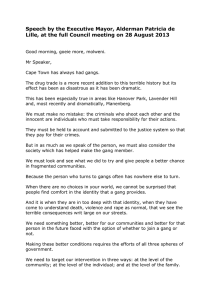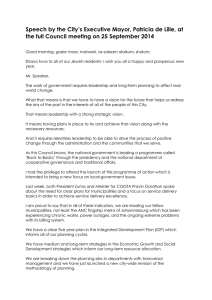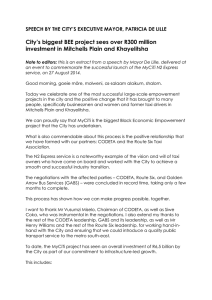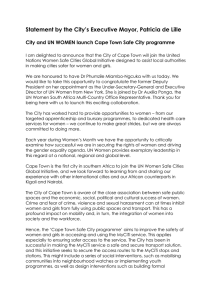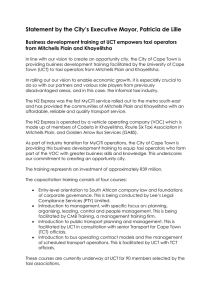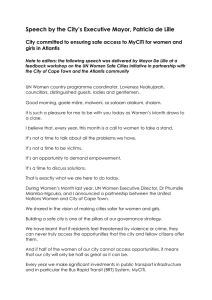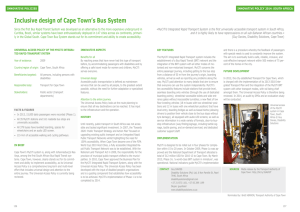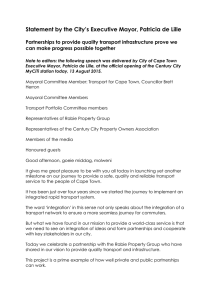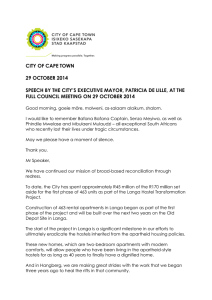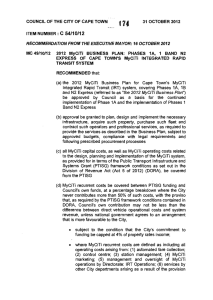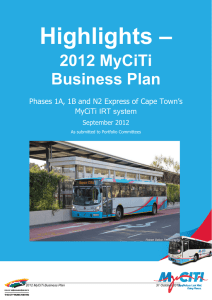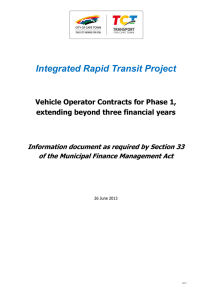Speech by the City’s Executive Mayor, Alderman Patricia
advertisement
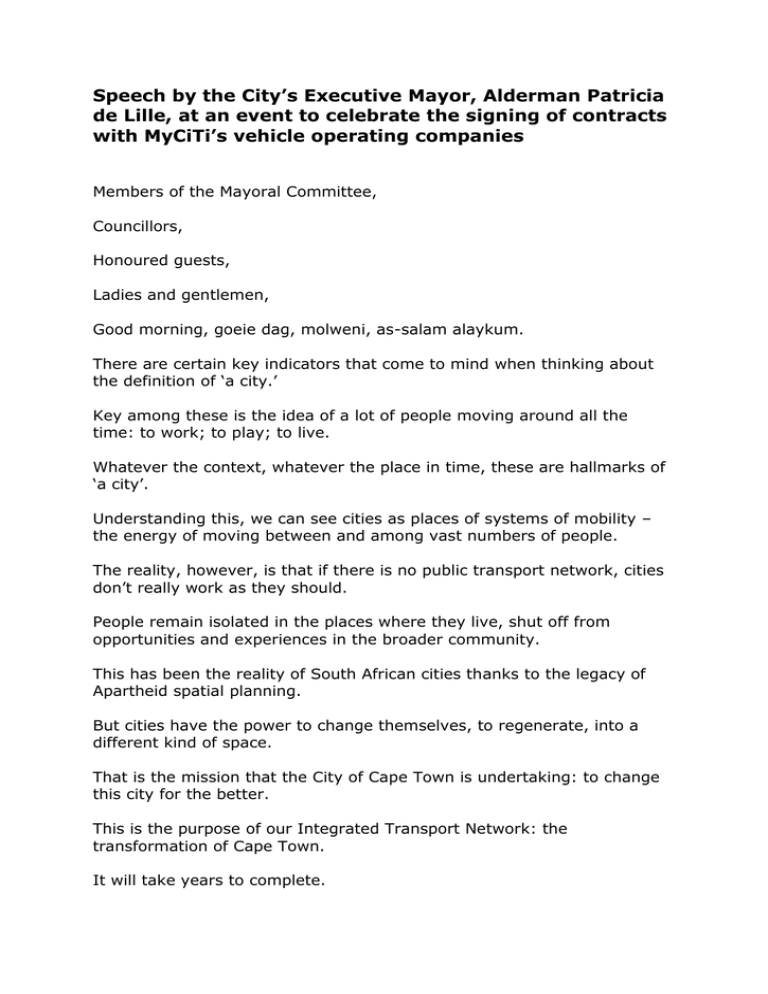
Speech by the City’s Executive Mayor, Alderman Patricia de Lille, at an event to celebrate the signing of contracts with MyCiTi’s vehicle operating companies Members of the Mayoral Committee, Councillors, Honoured guests, Ladies and gentlemen, Good morning, goeie dag, molweni, as-salam alaykum. There are certain key indicators that come to mind when thinking about the definition of ‘a city.’ Key among these is the idea of a lot of people moving around all the time: to work; to play; to live. Whatever the context, whatever the place in time, these are hallmarks of ‘a city’. Understanding this, we can see cities as places of systems of mobility – the energy of moving between and among vast numbers of people. The reality, however, is that if there is no public transport network, cities don’t really work as they should. People remain isolated in the places where they live, shut off from opportunities and experiences in the broader community. This has been the reality of South African cities thanks to the legacy of Apartheid spatial planning. But cities have the power to change themselves, to regenerate, into a different kind of space. That is the mission that the City of Cape Town is undertaking: to change this city for the better. This is the purpose of our Integrated Transport Network: the transformation of Cape Town. It will take years to complete. But the end result is an Inclusive City of opportunity. This will shift the city from a place of many spaces that are badly linked to one space which is joined by a common network. Within that network, the MyCiTi bus service places a critical role, with various phases for its roll-out to different parts of the city scheduled over the medium to long-term. The City is signing three 12-year agreements with the vehicle operators, comprising bus companies and minibus-taxi associations eligible to operate Phases 1A and 1B of the MyCiTi bus service. On Wednesday 28 August 2013, Council approved these long term agreements. The agreements were reached between the City and three vehicle operating companies (VOC): TBART (comprising Golden Arrow Bus Services and Sibanye), Kidrogen and Transpeninsula. The last two were formed by minibus-taxi associations. A major part of the MyCiTi project is industry transition. This refers to the process where the directly affected taxi owners are given the opportunity to exit the taxi industry and become shareholders in a formal VOC. The VOC is given a contract to operate parts of the MyCiTi service. The taxi owners that opt in are required to give up their operating licences and to scrap their taxis. They are paid compensation for their taxis and licences and they can then invest that lump sum payment into the new vehicle operating company. In order to make it worthwhile to the taxi owners, and to reduce their risk of loss of income, the contracts that are offered to the VOCs – to operate the MyCiTi service – needed to be of sufficient length of time. All the agreements are the result of two-and-a-half years of negotiations. All three companies represent public transport groups that are directly affected by the MyCiTi services they are to operate. On signature of the 12-year contracts, the City will be able to roll out milestones one to five over the next 18 months. In conclusion, in the coming years, Cape Town’s Integrated Transport Network will be an accepted and respected system – both by the stakeholders who run it and by the people who use it. So let us regard today as its own milestone – one that brings us closer to our goal of making a great city even greater. Thank you, baie dankie, enkosi.
